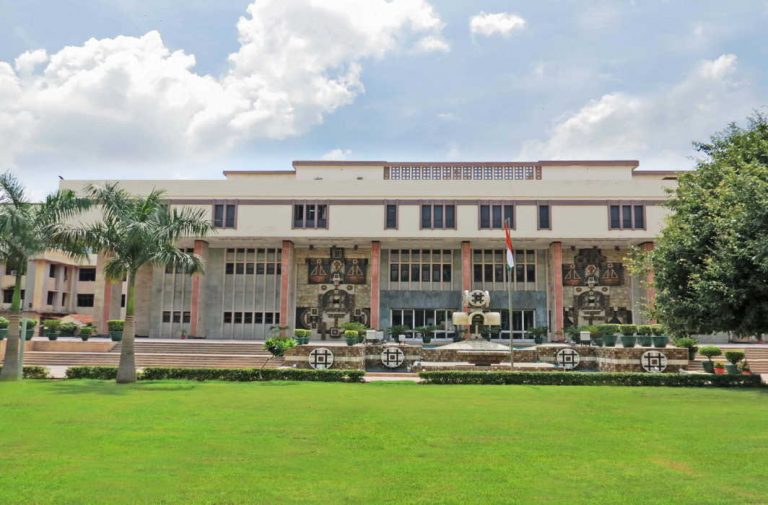
“An acquittal or discharge under Section 306 IPC would not ipso facto amount to an acquittal or discharge under Section 498A IPC. Ingredients of both the Sections are different”, said Delhi High Court while dismissing an appeal challenging the order of trial court whereby the charge has been framed against the petitioner under Section 498A Indian Penal Code.
Senior Advocate Mr. Harish Salve who appeared for the petitioner contended that Charge Sheet was filed both under Section 306 and Section 498A IPC, however, the Trial Court found insufficient material to proceed under Section 306 IPC. He submitted that cruelty under Section 498A IPC is to be of such a nature which is likely to drive a woman to commit suicide or to cause grave injury etc. and as the Trial Court found insufficient material to proceed under section 306 IPC, on the same analogy, there was insufficient material to even frame a charge under Section 498A of IPC.
Justice Sanjeev Sachdeva said in the present case trial court found insufficient material to charge the petitioner for an offence under Section 306 IPC but after examination of the material on record it was of the view that there is sufficient material to frame charge under Section 498A IPC.
“An acquittal or discharge under Section 306 IPC would not ipso facto amount to an acquittal or discharge under Section 498A IPC. Ingredients of both the Sections are different. Though, there may be an overlap with regard to cruelty being meted out to the deceased in both the Sections, however, the degree of cruelty to constitute abetment under Section 306 IPC would be of higher than the degree of harassment and cruelty to constitute an offence under Section 498A IPC. It cannot be held that because petitioner has been discharged of an offence under Section 306 IPC, it would automatically lead to a discharge of the offence under Section 498A IPC”, said the Delhi HC.
“In the present case, there is sufficient material on record in the form of the statements of the mother as well as the brothers of the deceased, alleging both physical and mental harassment by the petitioner/husband of the deceased. There are specific allegations that petitioner had maltreated the deceased and committed physical and mental cruelty on her and even made demands for money to purchase a plot. In my view there is sufficient material on record to give rise to grave suspicion against the petitioner for framing a charge under Section 498A IPC. On perusal of the record, I am satisfied that there is no infirmity in the view taken by the Trial Court in framing a charge against the petitioner for an offence under Section 498A IPC..,” said the Delhi HC while dismissing the appeal.
Courts direction came on the plea filed by Husband of the deceased who committed suicide after one year of her marriage and left a suicide note.
Trial court took note of the Suicide Note left by the deceased while discharging the petitioner from charges under Section 306 IPC but it found there were specific allegations made in the statement of mother of deceased and brothers of the deceased against the petitioner that he maltreated her and committed physical and mental cruelty.
Sections 306 IPC reads as under:-
“306. Abetment of suicide.—If any person commits suicide, whoever abets the commission of such suicide, shall be punished with imprisonment of either description for a term which may extend to ten years, and shall also be liable to fine.”
Sections 498A IPC reads as under: “498A. Husband or relative of husband of a woman subjecting her to cruelty.—Whoever, being the husband or the relative of the husband of a woman, subjects such woman to cruelty shall be punished with imprisonment for a term which may extend to three years and shall also be liable to fine. Explanation.—For the purpose of this section, “cruelty” means— (a) any wilful conduct which is of such a nature as is likely to drive the woman to commit suicide or to cause grave injury or danger to life, limb or health (whether mental or physical) of the woman; or (b) harassment of the woman where such harassment is with a view to coercing her or any person related to her to meet any unlawful demand for any property or valuable security or is on account of failure by her or any person related to her to meet such demand.”
Delhi High Court relied upon the judgment passed by the Supreme Court in case of Girdhar Shankar Tawde wherein it has clearly laid down that charges under Section 306 IPC and 498A IPC are independent of each other and acquittal of one does not lead to the acquittal of the other. Acquittal of a charge under Section 306 does not by itself become a ground for acquittal under Section 498A IPC but some cogent evidence is required to bring home the charge of Section 498A as well, without which the charge cannot be said to be maintained.
“An acquittal or discharge under Section 306 IPC would not ipso facto amount to an acquittal or discharge under Section 498A IPC. Ingredients of both the Sections are different”, said #DelhiHC
— India Legal (@indialegalmedia) May 28, 2019
-India Legal Bureau

